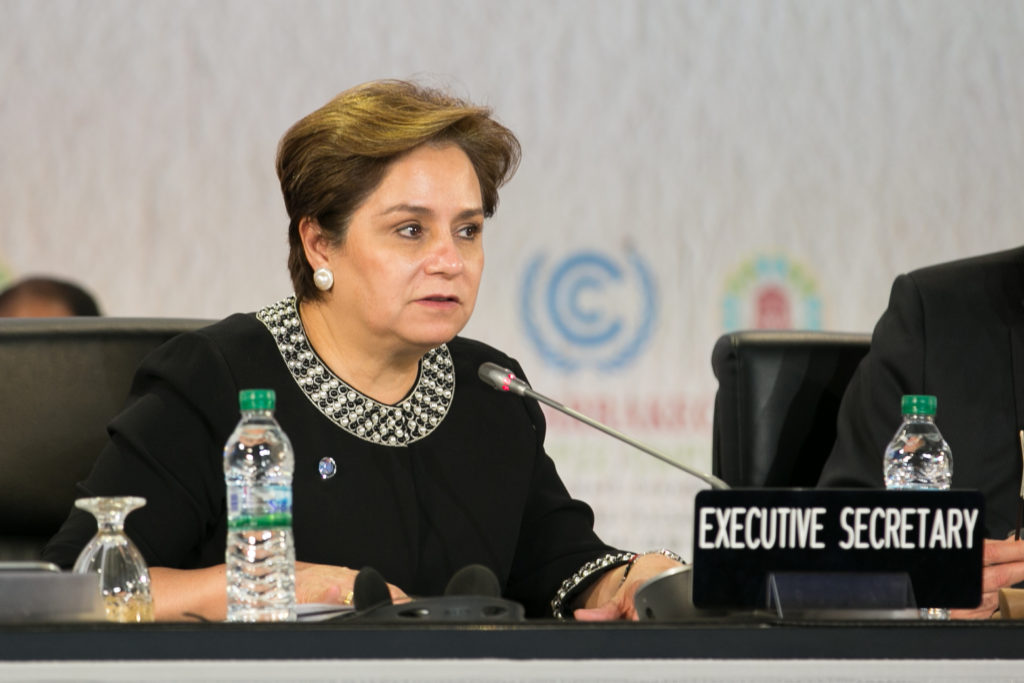UN Climate Change has launched a new toolkit designed to help countries implement policies and measures that increase resilience to climate impacts and reduce greenhouse gas emissions.

Such policies and measures are crucial for the international community to reach the central temperature goal of holding global average temperature rise to as close as possible to 1.5 degrees C and to adapt to the inevitable impacts of climate change, which include ever more frequent and more severe drought, floods, fires and storms.
The country’s capacity to act depends upon accurate assessments and the new toolkit draws upon the capacity assessment work of development agencies and international experts to help officials from developing countries assess the capacity gaps and needs of their country to respond to climate change.
Together, the hands-on examples, best practices, tools and clear policy options presented by the toolkit can help officials to implement effective national climate action plans under the Paris Agreement (Nationally Determined Contributions, or NDCs) tailored to their country’s circumstances, ultimately helping to reach the goals of the agreement.
The toolkit includes case studies from Malawi, Indonesia, Fiji, Colombia, Pakistan, Trinidad and Tobago, Papua New Guinea and Sri Lanka, presenting methods to identify and address capacity needs and gaps.
For example, a sustainable energy programme in Fiji is highlighted to show the importance of and possibilities created through gender inclusion mainstreamed in programme planning. The programme involves training villagers in an isolated island group to be solar engineers, learning to install and maintain solar panels for households in their community. This programme is supported through community-based funding and managed by a solar committee of five, three of whom include women to ensure gender inclusion and empowerment.
In Colombia, World Wildlife Fund Colombia conducted a project on behalf of the government to assess the ability of non-state and subnational actors to report accurate, comparable and verifiable data required for the biennial transparency report (BTR) under the enhanced transparency framework (ETF) of the Paris Agreement. The project found that only 60% of private and 52% of city government climate change mitigation activities could report confirmable information, highlighting a need for further development of reporting infrastructure as part of Colombia’s NDC plan.
The Government of Pakistan began a Climate Public Expenditure and Institutional Review (CPEIR) in 2012 with the UN Development Programme. A CPEIR is an intensive research and reporting process to provide insight into a country’s public expenditures relating to climate change, as well as to review climate plans and policies, institutional frameworks and public finance architecture. Key findings were that 6% of the federal budget went to expenditures related to climate change, with half of that composed of mitigation efforts. The report was a first attempt to provide reliable data on climate expenditures to help inform policymakers in their decision-making processes.
About the toolkit
From the UNFCCC, referenced resources come from the PCCB, the Local Communities and Indigenous Peoples Platform, the Standing Committee on Finance, the Consultative Group of Experts, and the Climate Technology Centre and Network.
Other organisations that served as resources for the toolkit include the International Union for Conservation of Nature, UN CC:Learn, UN Development Programme, Stockholm Environment Institute, Southeast Asian Fisheries Development Center, Better Evaluation, International Institute for Environment and Development, CARE International and FrameWork.
Based on these diverse case studies and the expert backgrounds of these organisations, the PCCB Toolkit ultimately recommends a capacity assessment cycle across five stages: inception, assessment, analysis, development and implementation, and monitoring and evaluation.
A UNFCCC technical paper from 2019 confirmed that all countries continue to face institutional, technical and financial barriers to assessing their capacity gaps and needs to implement the Paris Agreement. This document is a response to a recommendation from this 2019 technical paper to provide a toolkit to assist developing countries in this process.
The full PCCB Toolkit can be found here.
